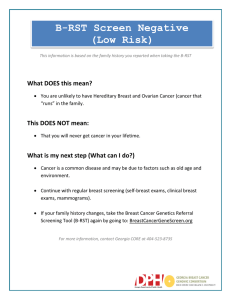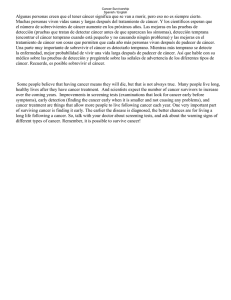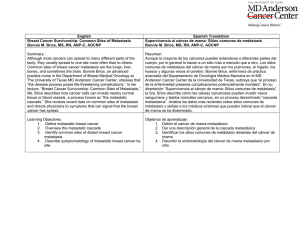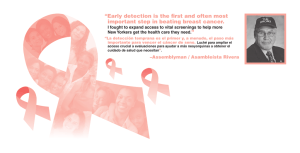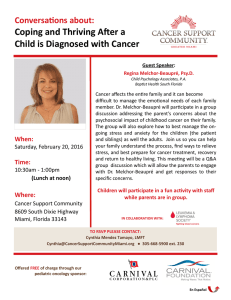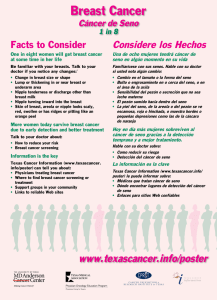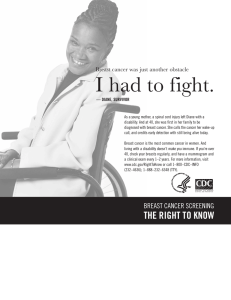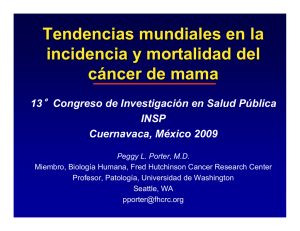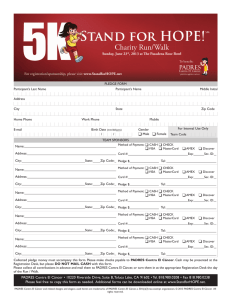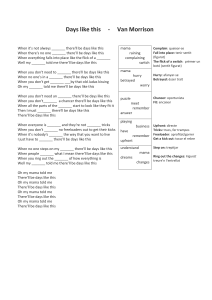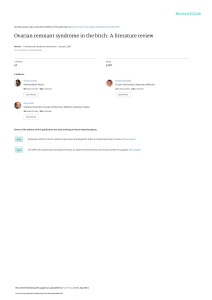Genetic Testing for Breast and Ovarian Cancer
Anuncio
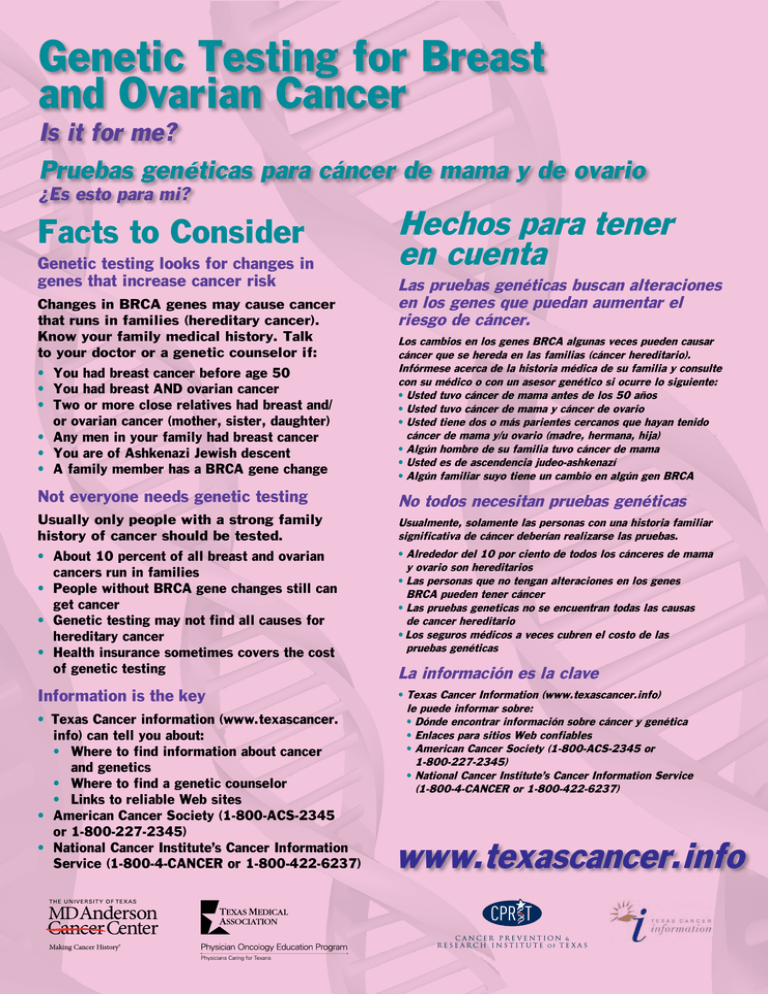
Genetic Testing for Breast and Ovarian Cancer Is it for me? Pruebas genéticas para cáncer de mama y de ovario ¿Es esto para mi? Facts to Consider Genetic testing looks for changes in genes that increase cancer risk Changes in BRCA genes may cause cancer that runs in families (hereditary cancer). Know your family medical history. Talk to your doctor or a genetic counselor if: • You had breast cancer before age 50 • You had breast and ovarian cancer • Two or more close relatives had breast and/ or ovarian cancer (mother, sister, daughter) • Any men in your family had breast cancer • You are of Ashkenazi Jewish descent • A family member has a BRCA gene change Hechos para tener en cuenta Las pruebas genéticas buscan alteraciones en los genes que puedan aumentar el riesgo de cáncer. Los cambios en los genes BRCA algunas veces pueden causar cáncer que se hereda en las familias (cáncer hereditario). Infórmese acerca de la historia médica de su familia y consulte con su médico o con un asesor genético si ocurre lo siguiente: •Usted tuvo cáncer de mama antes de los 50 años •Usted tuvo cáncer de mama y cáncer de ovario •Usted tiene dos o más parientes cercanos que hayan tenido cáncer de mama y/u ovario (madre, hermana, hija) •Algún hombre de su familia tuvo cáncer de mama •Usted es de ascendencia judeo-ashkenazí •Algún familiar suyo tiene un cambio en algún gen BRCA Not everyone needs genetic testing No todos necesitan pruebas genéticas Usually only people with a strong family history of cancer should be tested. Usualmente, solamente las personas con una historia familiar significativa de cáncer deberían realizarse las pruebas. • About 10 percent of all breast and ovarian cancers run in families • People without BRCA gene changes still can get cancer • Genetic testing may not find all causes for hereditary cancer • Health insurance sometimes covers the cost of genetic testing •Alrededor del 10 por ciento de todos los cánceres de mama y ovario son hereditarios •Las personas que no tengan alteraciones en los genes BRCA pueden tener cáncer •Las pruebas geneticas no se encuentran todas las causas de cancer hereditario •Los seguros médicos a veces cubren el costo de las pruebas genéticas Information is the key • Texas Cancer information (www.texascancer. info) can tell you about: • Where to find information about cancer and genetics • Where to find a genetic counselor • Links to reliable Web sites • American Cancer Society (1-800-ACS-2345 or 1-800-227-2345) • National Cancer Institute’s Cancer Information Service (1-800-4-CANCER or 1-800-422-6237) La información es la clave •Texas Cancer Information (www.texascancer.info) le puede informar sobre: •Dónde encontrar información sobre cáncer y genética •Enlaces para sitios Web confiables •American Cancer Society (1-800-ACS-2345 or 1-800-227-2345) •National Cancer Institute’s Cancer Information Service (1-800-4-CANCER or 1-800-422-6237) www.texascancer.info Talk to Your Patients about Genetic Testing A direct-to-consumer marketing campaign for BRCA1 and BRCA2 testing may result in increased patient interest in genetic testing. • Indications for genetic testing may include: • Breast cancer diagnosis before age 50 • Personal history of breast and ovarian cancer • Two first-degree relatives with history of breast and/or ovarian cancer • Any family history of male breast cancer • Family member with BRCA1 or BRCA2 mutation • Ashkenazi Jewish ancestry with any of the above • With BRCA1 or BRCA2 mutations, lifetime risk for breast cancer is 50 to 70 percent, and for ovarian, 15 to 44 percent • Men with a BRCA mutation may have risk for breast and/or prostate cancer Resources for survivors: • American Cancer Society (www.cancer.org, 1-800-ACS-2345) • FORCE: Facing Our Risk of Cancer Empowered, Inc. (www.facingourrisk.org) • MD Anderson Cancer Center (www.mdanderson.org) • National Cancer Institute (www.cancer.gov) • National Cancer Institute’s Cancer Information Service (1-800-4-CANCER) • National Society of Genetic Counselors (www.nsgc.org) • Texas Cancer Information (www.texascancer.info) • Texas Department of State Health Services (www.dshs.state.tx.us) Free Patient Education Poster from Texas Cancer Information www.texascancer.info For more free posters or Texas Cancer Information brochures: Texas Cancer Information – 511 1515 Holcombe Blvd. Houston, TX 77030 (713) 792-2277 E-mail: info@texascancer.info www.texascancer.info For cancer-related continuing medical education information: Texas Medical Association’s Physician Oncology Education Program 1 (800) 880-1300, Ext. 1672 E-mail: poep@texmed.org www.poep.org
